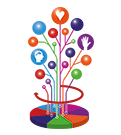In the introduction to every series of Skill Sheets four levels of skill proficiency are specified:
- Level 1: Entry level Bachelors
- Level 2: Exit level Bachelors
- Level 3: Exit level Masters
- Level 4: Postgraduate level
You should develop your research skills in every phase of your academic career (and thereafter!). The levels of skills proficiency below provide an indication of the skill proficiency you should minimally aim for.
Find below the four specified levels of Research skills proficiency:
Level 1
- Research on questions formulated by others/the teacher
- Own experience forms the prime basis of research
- Link general knowledge (secondary school) to prime object of research or the university
- Understand the reflective cycle as concept
- Can make distinction between ‘good’ and ‘bad’ research, and between ‘science’ and ‘journalism’
- First use of basic Internet search methods and (online) libraries
- Understand and able to use the relationship between model and reality (inductive and deductive reasoning)
Level 2
- Research on the basis of (simple) own questions
- Experience of fellow students forms additional basis of and input for research
- A broad spectrum of research methods is understood and applied; choice of the best method concerning the research topic
- Accession requirements of Master are known
- Mastering in particular the descriptive part of the reflective cycle
- Use Internet and other search engines effectively in combination with a systematic use of (online) libraries
Level 3
- Translation of other people’s experience into own research questions
- Commitment to a specific research master
- Knowledge of master specific skills and research methods
- The whole reflective cycle is mastered; understanding of the balance between description and prescription
- Mastering advanced research methods on Internet and in libraries (in particular as regards finding relevant scientific articles)
- Knowledge of important other sources of information
Level 4
The graduated Master remains research-oriented, invests in attitude and creates the right preconditions for good research
- Applies the reflective circle with an emphasis for the prescriptive dimension (based on solid descriptive research)
- Is part of a network of informants and is capable of intensifying and de-intensifying this network in order to access relevant information.
- Feedback on research by contractors.

